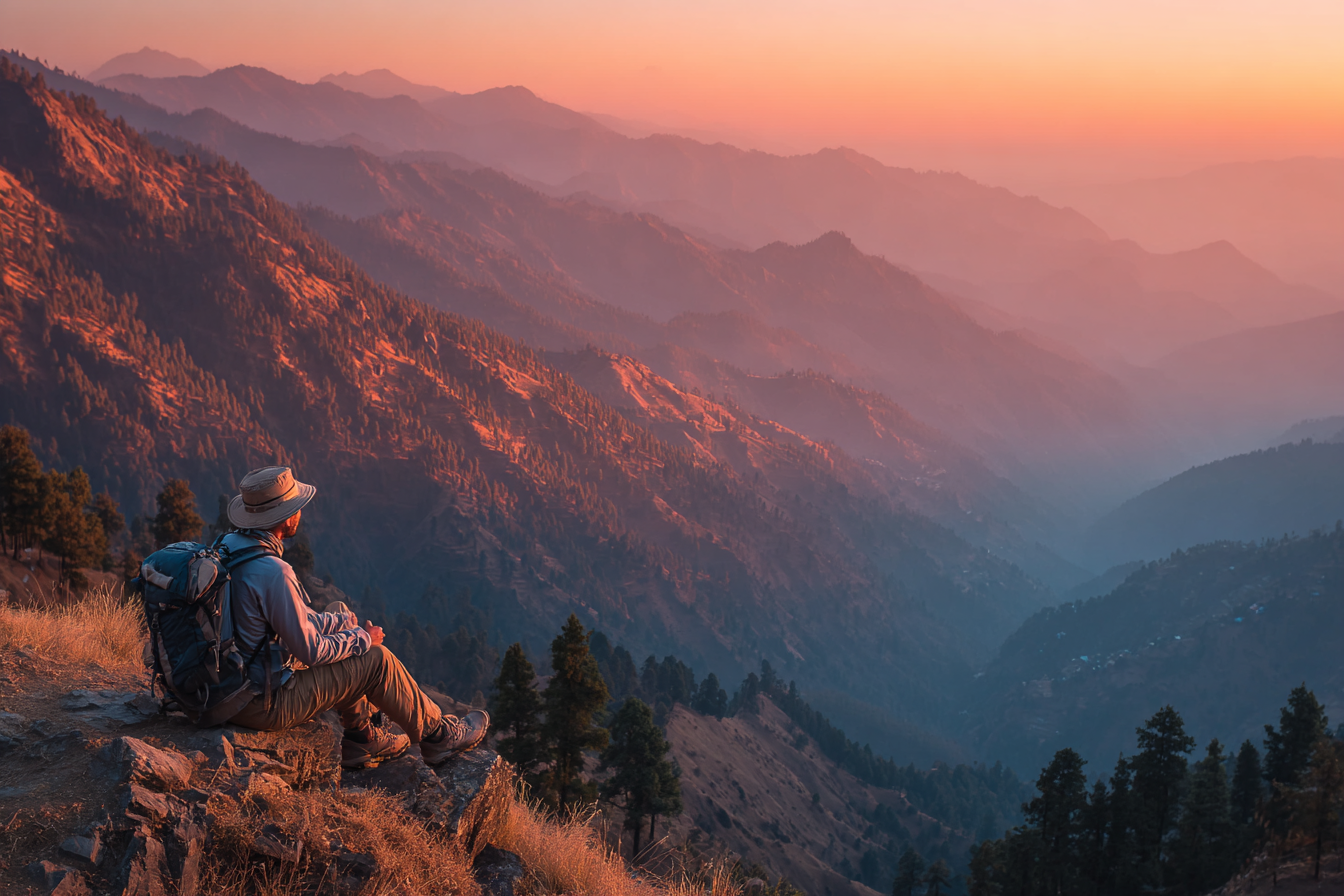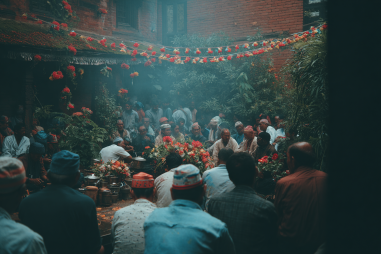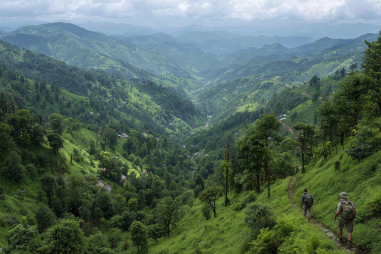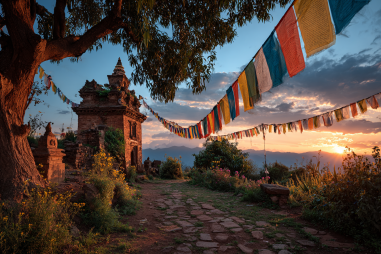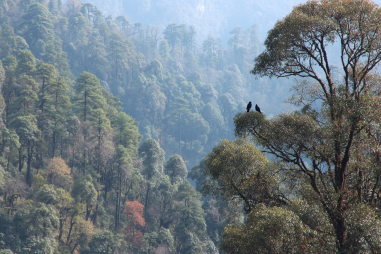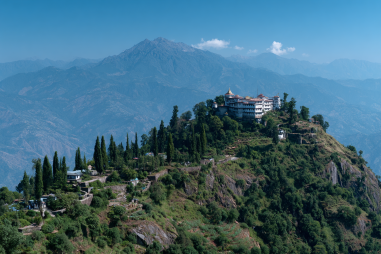Planning a trip to Gorkha, Nepal, is an exciting adventure filled with breathtaking natural beauty, rich history, and vibrant culture. Nestled in the hills, this region holds a special place in Nepalese heritage and offers visitors a unique blend of trekking opportunities and cultural experiences. To ensure your journey is smooth, safe, and enjoyable, it’s important to be well-prepared. Here are some essential Gorkha travel tips covering everything from pre-trip preparation and health precautions to local customs and weather readiness.
Pre-trip Preparation and Documentation
Before you set off for Gorkha, make sure your travel documents are in order. If you’re traveling internationally, check the visa requirements for Nepal well in advance and obtain the appropriate visa. Your passport should have at least six months of validity remaining. It’s also wise to keep multiple copies of important documents like your passport, visa, travel insurance, and any permits required for trekking or visiting certain areas.
Booking accommodations and transport beforehand can save you last-minute hassle, especially during peak tourism seasons. Make sure you understand the entry requirements if you plan to visit restricted areas around Gorkha, particularly if trekking in the upper hills or remote villages.
Health and Safety Advice
Health should be a top priority when traveling to Gorkha. The region’s altitude, terrain, and limited medical facilities mean you need to prepare carefully. Consult your doctor before traveling to discuss any vaccinations or medications you might need, such as prophylactics for altitude sickness or antibiotics for traveler’s diarrhea.
Drink bottled or purified water and avoid tap water or ice cubes to prevent stomach illnesses. Carry a basic first aid kit including any personal medications, bandages, antiseptic wipes, and pain relievers. If you plan on trekking, acclimatization is important to avoid altitude sickness—take it slow and listen to your body.
Safety-wise, Gorkha is generally safe for tourists, but be mindful of local advisories and avoid traveling at night on less secure roads. Register with your embassy or consulate, and let family or friends know your itinerary.
Cultural Etiquette and Local Customs
Gorkha is rich in cultural heritage, with traditional lifestyles and customs still prevailing in many communities. Showing respect for local traditions can enhance your experience and help you build positive connections with the locals. When visiting homes, temples, or monasteries, dress modestly and remove your shoes where required.
Greetings in Nepal are commonly done with a “Namaste” gesture—hands pressed together at chest level with a slight bow. Always use your right hand or both hands when giving or receiving items, and avoid touching someone’s head, especially children, as it’s considered disrespectful. Photography permissions should be asked before snapping pictures, especially of people.
Packing Essentials
Packing for Gorkha depends on the time of year and activities planned, but there are some essentials that every traveler should have. Good quality trekking shoes or comfortable walking boots are a must for navigating hilly terrain. Carry layered clothing to adjust to temperature changes, including a waterproof jacket, thermal wear, and sun protection gear such as hats and sunglasses.
Other must-haves include insect repellent, sunscreen, a reusable water bottle, and a flashlight or headlamp if you plan to stay in remote areas. If trekking, consider packing lightweight sleeping bags and trekking poles. Don’t forget toiletries and a universal power adapter for charging your electronics.
Money and Communication Tips
The local currency in Gorkha is the Nepalese Rupee (NPR). While larger towns may have ATMs and banks, remote villages often do not, so carry enough cash in smaller denominations for daily expenses and tips. Credit cards are unlikely to be accepted outside major hotels or shops, so plan accordingly.
Mobile phone coverage varies—have a reliable local SIM card if you want consistent connectivity. Before your trip, check if your phone is unlocked and compatible with Nepalese networks. Wi-Fi is available in some guesthouses and restaurants, but don’t count on it in remote trekking zones.
Navigating Transport
Getting to Gorkha involves a combination of flights and road travel. The closest airport with commercial flights is in Pokhara, followed by a scenic 3–4 hour drive via local buses or private taxis to Gorkha town. Roads can be rough and congested, so plan extra travel time.
Once in Gorkha, local transportation options include jeep rides, buses, taxis, and walking, which is the best way to explore nearby villages and trekking routes. If you’re trekking, hiring a local guide or porter can provide assistance and deepen your understanding of the area.
Weather Preparedness
The weather in Gorkha varies with the seasons. Summers (June to August) bring monsoon rains, making trekking muddy and occasionally dangerous due to landslides. The best time to visit is during autumn (September to November) and spring (March to May), when weather is generally clear, temperatures moderate, and views spectacular.
Winters can be chilly, especially at higher altitudes, so pack accordingly. Keep an eye on weather forecasts and trail conditions, especially if you are trekking, and be prepared to modify your plans depending on the weather.
Emergency Contacts and Resources
It’s important to be prepared for emergencies. Note down contact numbers for local hospitals, police stations, your country’s embassy or consulate, and your accommodation. Carry a list of any personal medical information and emergency contacts back home.
Many trekking companies provide emergency evacuation services, which might be pricey but vital in case of serious illness or injury. Travel insurance with comprehensive coverage—especially for trekking activities—is highly recommended.
Traveling Smart in Gorkha
Exploring Gorkha offers a remarkable journey through Nepal’s natural beauty and cultural richness. By preparing well—taking care of your health, respecting local customs, packing smart, managing your money wisely, and staying aware of your surroundings—you can ensure a memorable, smooth, and safe trip. Embrace the adventure with an open heart and a cautious mind, and Gorkha will reward you with experiences you’ll cherish for a lifetime.

